
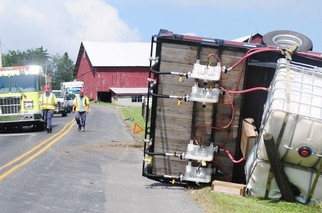
Aug 31- Kevin Figaniak, a 21-year-old Wheeling Jesuit University student, was beaten to death by Craig Tyler Peacock and Jarrett Mathis Chandler. Peacock and Chandler are from out of the area and are reported to be working in the natural gas industry.
Aug 30- A Chevron pipeline leaked an unknown quantity of natural gas in the Gulf of Mexico near Pascagoula, Mississippi.
Aug 29- Jesse A. Grimsley, 31, of Shevlin, Minn, was killed in a Sheehan Pipeline Construction accident near Steubenville, OH. According to the sheriff’s office, Grimsley had filed a daily equipment check noting "brakes will not hold on hill.” Sheehan Pipeline Construction is based in Tulsa, Okla.
Aug 29- Michael Guesman of Cortland admits in U.S. District Court in Cleveland that his former boss at Hardrock Excavating, Ben Lupo ordered him to dump brine waste on 24 separate occasions into the Youngstown sewer system.
Aug 29-An oil rig exploded in Lavaca County, TX, triggering a massive fire [video]
Aug 27-Caller discovers tanker truck dumping brine water on the roadway and running into Clearfork Creek near Grayville, OH
Aug 23-A breached frack pond operated by Berry Petroleum flooded nearby residential property in Gardendale, TX.
Aug 22-Residents in Chartiers Twp., PA complained of burning eyes, throat nausea and a metallic taste their mouths after another flaring incident at MarkWest’s natural gas processing plant. This is at least the third flaring incident at the plant in the past six weeks.
Aug 22-A pipe manufacturer in the Marcellus region spilled 5,000 gallons of sulfuric acid into the Shenango River.
Aug 21-Chesapeake Appalachia is cited with not reporting two pollution incidents in Beaver County, PA. Soil samples and eye-witness accounts suggest petroleum products and flowback wastewater spilled onto the ground.
Aug 20-A 16-inch natural gas pipeline exploded in OK sending flames 200 ft. in the air and damaging a barn.
Aug 20-A semi-truck hauling for oil and gas wells in the area struck and killed 57-year-old Dan Wilson of Weirton, WV along U.S. 22. The truck company was out of Indiana. [video]
Aug 20-West Virginia environmental regulators cited MarkWest Energy for causing a fishkill in Rocky Run, a tributary of Fish Creek after one of their pipelines ruptured. Minnows, smallmouth bass and other species of fish died from the spill.
Aug 16-A Texas longhorn steer was killed by exposure to poisonous hydrogen sulphide (H2S) gas from a pipeline leak in Alberta.
Aug 16- An Antero Resources site in Harrison County, WV caught ablaze sending three workers to the hospital, two via airlift.
Aug 16- Records were released indicating that OSHA cited Central Environmental Services LLC for the death of Brian Hopkins caused by an explosion at an EQT Corp. well pad in Taylor County, WV.
Aug 13-A landslide ruptured a MarkWest Energy pipeline in Wetzel County, WV causing a leak of an unidentified, but potentially explosive, liquid into a nearby stream.
Aug 13-Around 80 families were evacuated when a pipeline carrying gas byproducts ethane and propane somehow ruptured, caught fire, and exploded in IL.
Aug 10-A 24-year old was killed when a block from a New Star Energy fell and crushed him near Highvale, Alberta. [video]
Aug 7- A joint study from the U.S. Geological Survey and the U.S. Fish and Wildlife Service found that a Nami Resources Company’s fracking fluid spill in Kentucky in 2007 likely caused the widespread death of several types of fish.
Aug 6-A driver was cleared of any wrongdoing for failing to stop after his 18-wheeler carrying fracking wastewater crushed a 14-year-old boy in Fort Worth, TX on April 24, 2013. Deston Bibbs died as a result of his injuries.
Aug 3-In Tioga County, PA, Swepi Lp spilled 5 barrels of produced water from hole in the coil tubing unit onto the containment and pad. Holes were discovered in the containment liner.
Aug 1-A truck hauling brine collided with two cars in Vienna Township, OH. Injuries were reported.
Aug 1-In Lawrence County, PA, a Rockwater Energy Solutions truck carrying ethylene glycol to nearby fracking operations crashed spilling 265 gallons of the toxin poison in a field. Unfamiliarity with the road was cited as one of the causes of the accident.
Aug 1-Two families in TX file a class-action lawsuit claiming that fracking caused damage to their real estate and homes.
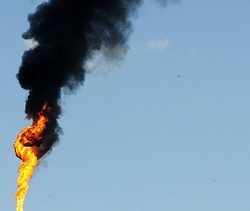
July 28-Jason Mearns, 37, of Beverly, W.Va., died as a result of a well explosion in New Milton, WV.
July 25-Slurry produced by the construction of the Appalachia-to-Texas Express Pipeline leaked into a creek in OH.
July 25- The Justice Department announces that Halliburton admits to destroying evidence in the Deepwater Horizon oil spill disaster in the Gulf of Mexico and will plead guilty to a criminal charge.
July 24-A truck that carries fracking waste blew up killing a Wise County resident in TX.
July 24-Tommy Paxton, a 45-year-old from Walton, W.Va. died after an explosion on a well pad in WV.
July 23-An out-of-control natural gas well off the Louisiana coast caught fire. This is the second natural gas well in the gulf to fail in as many weeks.
July 22-Hundreds of residents were evacuated after a high pressure Dominion gas line ruptured in OH.
July 22- A crane tuck rolled off a road and over the hillside in Ohio County, WV, leaking diesel and closing the road. The truck from coming from gas drilling site in Marshall County and is reported to be contracted by Noble Energy.
July 21-A Halliburton truck leaking hydrochloric acid closed part of Interstate 70 for four hours.
July 20-A driver of a water truck was flown by helicopter to a Morgantown hospital after his truck overturned in WV.
July 18-Energy Corp. Of America is is caught discharging industrial waste to waters of Commonwealth without a permit in Moshannon State Forest in Clearfield County, PA.
July 18-OH Landowner accuses driller A.E.R. of dumping wastewater on his land [video].
July 18-The EPA fined XTO Energy (Exxon Mobil) $100,000 for violating the federal Clean Water Act for a two-month discharge of between 6,300 and 57,373 gallons of wastewater into the Susquehanna river system in Penn Township, Lycoming County.
July 18-Waste Treatment Corporation (WTC) received legal notice from Clean Water Action for their illegal discharge of oil and gas drilling wastewater (including chloride, bromide, lithium, strontium, radium-226, and radium-228) into the Allegheny River in Warren, PA.
July 16-Energy Corp Of America cited for 307CSL-Discharge of industrial waste to waters of Commonwealth without a permit in Moshannon State Forest, Clearfield County
July 14 & 15-A malfunction at the MarkWest Houston Gas Plant in Washington County sending large amounts of black smoke into the air for two days. Residents report hearing a loud boom and seeing a mushroom cloud.
July 13-A gas well pad in Wetzel County, WV caught fire around 6:30 pm.
July 12- A spill on a Penneco well site in Center Twp. left dead vegetation all the way and into Claylick Run. There were reports of an oily substance released off site through pasture and into Claylick Run.
July 9- An oil field accident killed two men in KS. Both were exposed to deadly hydrogen sulfide gas; a byproduct from the production of oil and natural gas. It causes respiratory paralysis and is highly toxic. [video]
July 9-A gas leak in the Gulf of Mexico caused the greenhouse-gas methane to escape into the atmosphere. The Coast Guard reports a "rainbow sheen" over a four mile area
July 8- Gas worker admits to dumping wastewater in the Big Sandy River after his boss told him to do so. [video]
July 8- A road in NJ collapses due to Tennessee Gas Pipeline Co.'s Northeast Upgrade Project. It will take 1 to 2 weeks to repair the road. [video]
July 8-Brine & produced water were spilled at a well in Lycoming County.
July 7-The media is reporting the between five and eight people were injured when a gas well exploded in Doddridge County , WV. There is suspicion that the employer was violating mandatory work hour rules.
July 6-As many as 40 people are missing after a massive explosion caused by a derailed train leveled parts of Lac-Megantic in Quebec. Up to 1,000 people were evacuated in the community. [video]
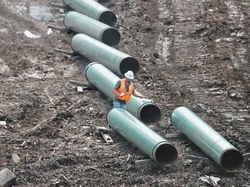
June 26-Two county workers suffered minor injuries and at least 34 cars were damaged when a section of roadway sunk as a result of a Sunoco Pipeline LP project in Beaver County.
July 25- In Susquehanna County, PA, Chief Oil and Gas spilled an estimated 20 barrels of oil due to a valve that was left open. It then leaked onto the ground through a hole in the plastic lining.
June 25-A caller to the NRC reported a fire at an oil well near Ravenna, OH. There were 150 gallons of oil released.
June 25-A 30-inch transmission pipeline exploded in Enon, LA causing the evacuation of 55 people.
June 22-A water tuck owned by JB Oil and Gas ran a stop sign killing a mother and her 14 year old daughter.
June 21-PVR’s Chapin Glycol Dehydration plant in Monroe Twp accidentally discharged in the atmosphere. This is the 3rd such event since the PVR Chapin plant went operational in late spring of 2012. [video]
June 21 -32-year-old Greg Peacock, died from 3rd degree burns he suffered during an explosion at a well pad. He left behind a two year-old son and fiancee.
June 20-50 homes were evacuated when a gas pipeline containing 1% deadly hydrogen sulfide ruptured southwest of Calgary after debris from a flood struck the pipeline.
June 18-A 30-inch transmission line in Louisiana ruptured, sparking a natural gas explosion and a fire.
June 13- A gas line ruptured underneath the Ohio River near Bellaire spewing gas out of the water between OH and WV [video]
June 12 -A truck at a well in MI backed into a high-pressure line causing an explosion that knocked people over in a nearby home.
June 12 -A Williams cracker plant in LA exploded killing 2 and injuring 100. This is the same type of plant that is proposed for Beaver County.
June 7-Investigations determined that Vintage Oil illegally dumped formation fluids and fracking fluids into an unlined pit in CA [video]
June 4- PA DEP fined PVR Marcellus Gas Gathering LLC of Williamsport, Lycoming County, $150,000 for multiple and continuing violations of the Pennsylvania Clean Streams Law, the Dam Safety and Encroachments Act and various related environmental regulations, including sediment discharges into High Quality and Exceptional Value streams during construction of the Coal Mountain pipeline in four Lycoming County townships
June 4-Wastewate hauler Harch was ordered to suspend operations in OH after evidence was found that the company was illegally disposing waste in a private pond [audio]
June 3- SWEPI LP was cited in for “failure to properly store, transport, process or dispose of a residual waste” at their West 1 OG Well in Slippery Rock Twp.
June 3- RE Gas Dev LLC (Rex Energy) was cited for “discharge of industrial waste to waters of Commonwealth without a permit” at their Warner Unit 1H in Lancaster Twp.
June 1-A pipeline operated by a Texas-based oil company has leaked 9.5 million litres of industrial waste water in Canada.
June 1-A caller to the NRC reported that a water tanker truck was dumping into Indian Creek in Tyler County, WV.
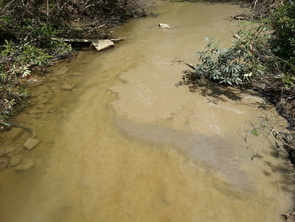
May 30- PDC Energy pipeline drilling operations polluted White Day Creek in Monongalia County, WV.
May 30-13 people were injured in natural gas explosion at Williams Gas Pipeline facility in Branchburg, NJ.
May 14-Explosion at Williams natural gas compressor in Brooklyn Twp., Susquehanna County [video]
Approx. May 22-A Louisiana man was killed at a North Dakota drillsite
May 1-More than 1,600 gallons of oil spilled from an oil storage tank into a creek in Trumbull County, OH [video]
May 30- PDC Energy pipeline drilling operations polluted White Day Creek in Monongalia County, WV.
May 30-13 people were injured in natural gas explosion at Williams Gas Pipeline facility in Branchburg, NJ.
May 14-Explosion at Williams natural gas compressor in Brooklyn Twp., Susquehanna County [video]
Approx. May 22-A Louisiana man was killed at a North Dakota drillsite
May 1-More than 1,600 gallons of oil spilled from an oil storage tank into a creek in Trumbull County, OH [video]
May 30- PDC Energy pipeline drilling operations polluted White Day Creek in Monongalia County, WV.
May 30-13 people were injured in natural gas explosion at Williams Gas Pipeline facility in Branchburg, NJ.
May 14-Explosion at Williams natural gas compressor in Brooklyn Twp., Susquehanna County [video]
Approx. May 22-A Louisiana man was killed at a North Dakota drill site
May 1-More than 1,600 gallons of oil spilled from an oil storage tank into a creek in Trumbull County, OH [video]
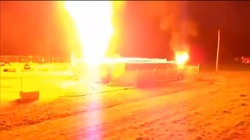
April 30- 9,000 gallons of wastewater spilled onto a miniature horse farm and into the farmhouse basement and garage from a Carrizo well site. Fluid spilled from another Carrizo well site in Wyoming County in March [video]
April 27-A considerable amount of natural gas and crude oil residue blew out of an Atlas Energy pipeline Lafayette Twp., Bradford County.
April 27-More than 100 barrels of oil-based drilling mud spilled into Cadron Creek after a truck accident in WV.
April 17- MarkWest natural gas operations in Butler and Washington Counties were cited by the EPA for being in violation of federal clean air laws.
April 11-Two men died after an explosion at Eureka Hunter Pipeline operations near Wick, W.Va
April 4-An explosion at a natural gas compressor station in Logan County, OK forced the evacuation of homes within one square mile of the incident.
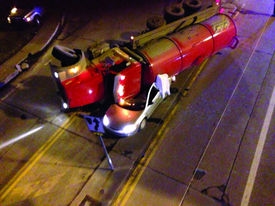
March ??-DEP found "petroleum-based hydraulic fluid used in industry" in Hicks Creek . It is unknown who or the when the dumping took place.
March 19-A compressor station caught fire in Bradford County, PA sending one worker to the hospital with burns. [video]
March 17-An oil tank on a pad in Columbiana County, OH exploded throwing its lid 400-500 feet into the yard of a nearby residence.
March 15-An explosion of a gas well with 30 ft. flames forced people from their homes in Chippewa Township, Wayne County, OH. It was felt 3 miles away.
March 14-Frack fluid spewed at a rate of 800 gl/min. in Wyoming County, Pa [video]
March 9-A Spectra Energy compressor station in Clearville, PA spewed methane and other hydrocarbons over a period of three hours. Local homeowners complained yet Spectra and the DEP denied the release for 6 six days.
March 9-Two children were killed when a water truck rolled over and crushed a car on in Clarksburg, WV.
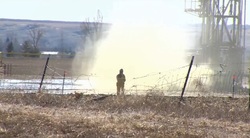
Feb 26-One man was killed and another was injured in a drilling accident in eastern Ohio.
Feb 22-PA based Noble Energy spills over 95,000 gallons from a frack pond into a local tributary of Big Wheeling Creek in WV [video]
Feb 13-A blowout at a Chesapeake well sent fluid gushing into a stream in Bradford County, Pa
Feb 12-Over 12,000 gallons of “re-use” water was spilled at a Range Resources site in Cross Creek County Park, Washington County, PA
Feb 11-84,000 gallons of green oil-laden fracking fluid gushed from an oil well near Fort Collins, Co for nearly 30 hours
Feb 4-Approx. 840 gallon of waste water were spilled at the Rex/ McElhinney well in Forward Township, Butler County, Pa
Jan 16-A chemical emergency is reported at an Ohio oil well facility. At the time of the investigation, an inventory of the facility's chemicals wasn't available to local authorities.
Jan 14-Two workers were critically injured after an explosion at a well site in Atascosa County, TX. [video]
Nov. 1 to Jan. 31— likely more than 250,000 gallons of drilling wastewater and oil illegally dumped into a Mahoning River tributary in Ohio

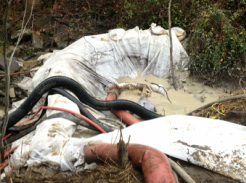
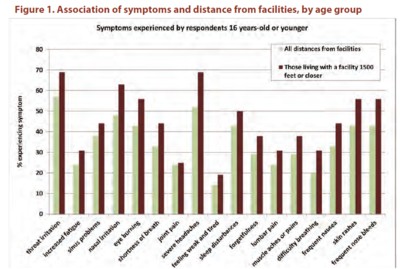
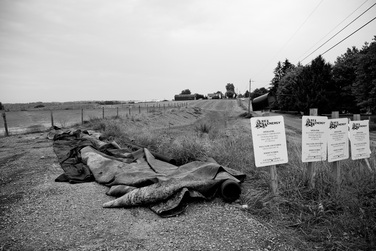
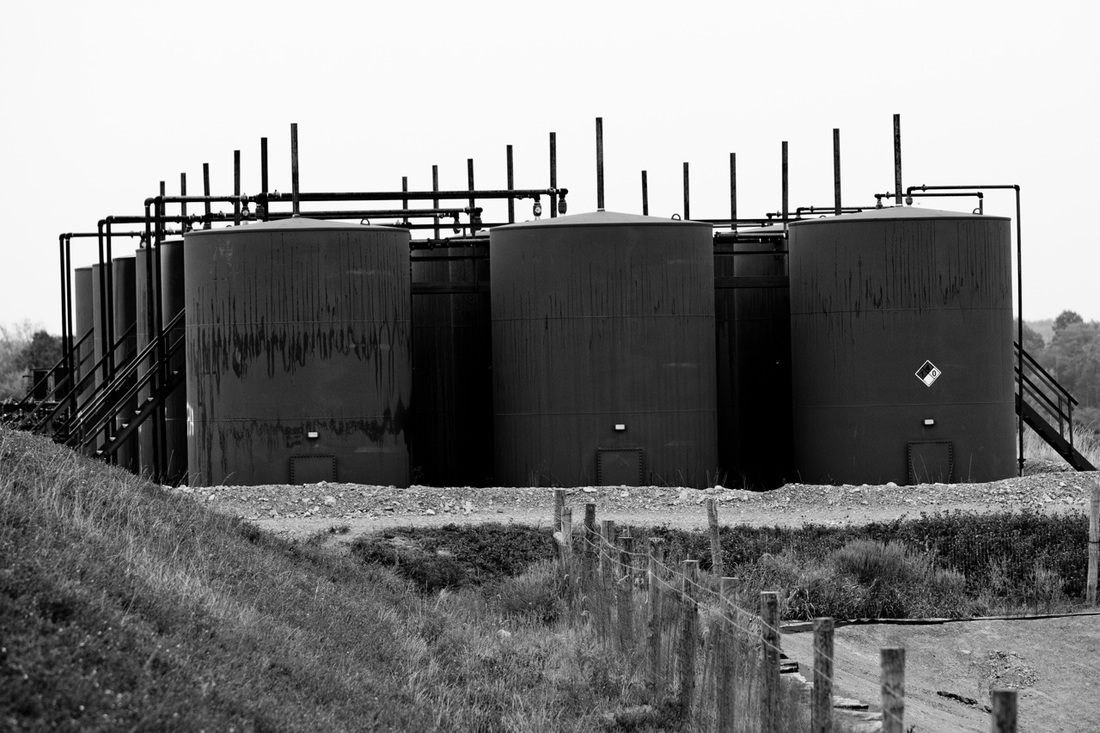
 RSS Feed
RSS Feed
